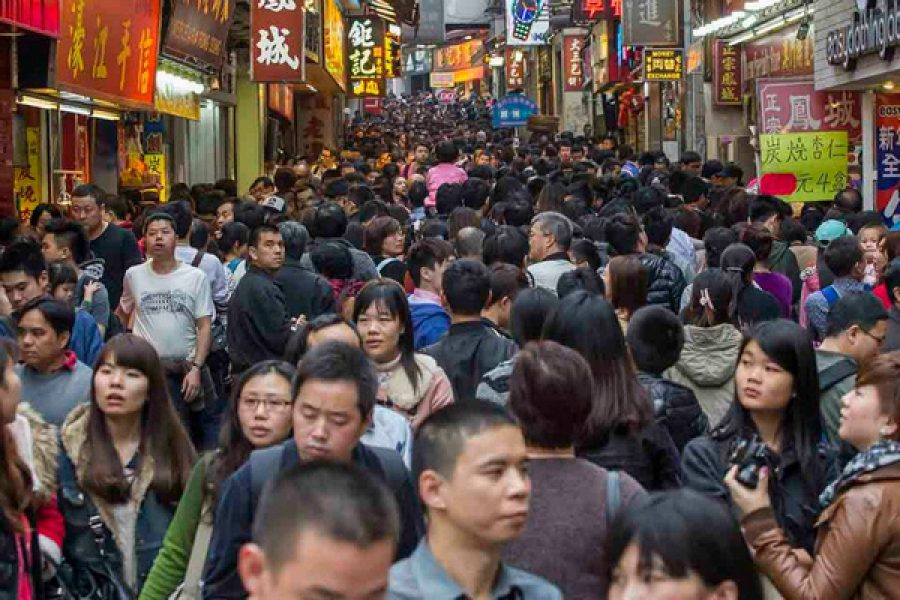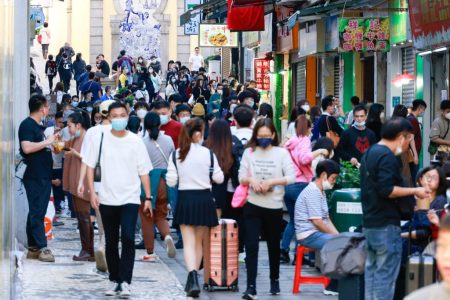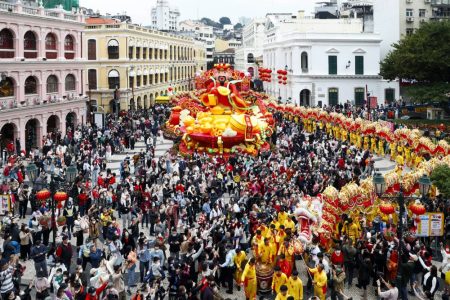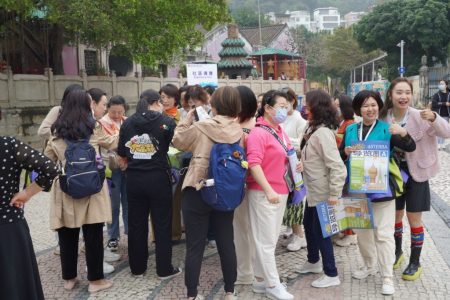The government’s top tourism official said Thursday she believed that the mainland’s Individual Visit Scheme would continue to benefit the development of tourism in the city.
Macau Government Tourist Office (MGTO) Director Maria Helena de Senna Fernandes made the remark on the sidelines of a public activity to celebrate the Chinese New Year in Taipa that she attended as a guest.
Asked by reporters for her comments on travellers’ complaints about the long wait to cross Barrier Gate checkpoint during the Chinese New Year holidays and the city’s visitor capacity, Senna Fernandes said that the situation would be improved after some of the immigration halls were extended.
She also said that she believed that the city would further improve its ability to receive more tourists after public transport, border services and hotel services are upgraded.
“We all should understand that the Chinese New Year is the main holiday season in mainland China… on normal days the situation is different,” Senna Fernandes was quoted by The Macau Post Daily as saying, adding, “We should not evaluate the city’s visitor capacity based on the number of visitors arriving during the Chinese New Year holidays.”
“We [the government] absolutely believe that Macau is able to improve services provided to our visitors… we are also working on how to divert visitors to different districts in the city,” the city’s new tourism chief said.
“When the city’s tourism facilities …the immigration checkpoints, hotels are improved the city’s visitor capacity can be constantly upgraded,” she said, adding that how to encourage visitors to extend their stay in the city was the main issue for the office to tackle.
Asked by reporters as to whether people from more mainland cities should be allowed to visit Macau through the Individual Visit Scheme or whether it should be limited, Senna Fernandes said that mainlanders using the scheme gave a major boost to the local economy.
The Individual Visit Scheme was first introduced in four Guangdong cities (Dongguan, Foshan, Jiangmen and Zhongshan) on 28 July 2003 as a liberalisation measure under the Closer Economic Partnership Agreement (CEPA). The scheme allows residents of these cities to visit Hong Kong and Macau as individuals.
“It is very important for the local economy … we should not change the policy in haste. Currently there are 49 mainland cities included in the scheme […] some of the cities are some distance [from Macau] and I believe people from those mainland cities will stay in the city longer,” she said, adding that regarding the future development of tourism the policy would be of great benefit to the city.
According to the official statistics, during Macau’s Chinese New Year holiday – from Sunday to Wednesday – about 807,000 locals and visitors passed through the city’s border checkpoints.(macaunews)






